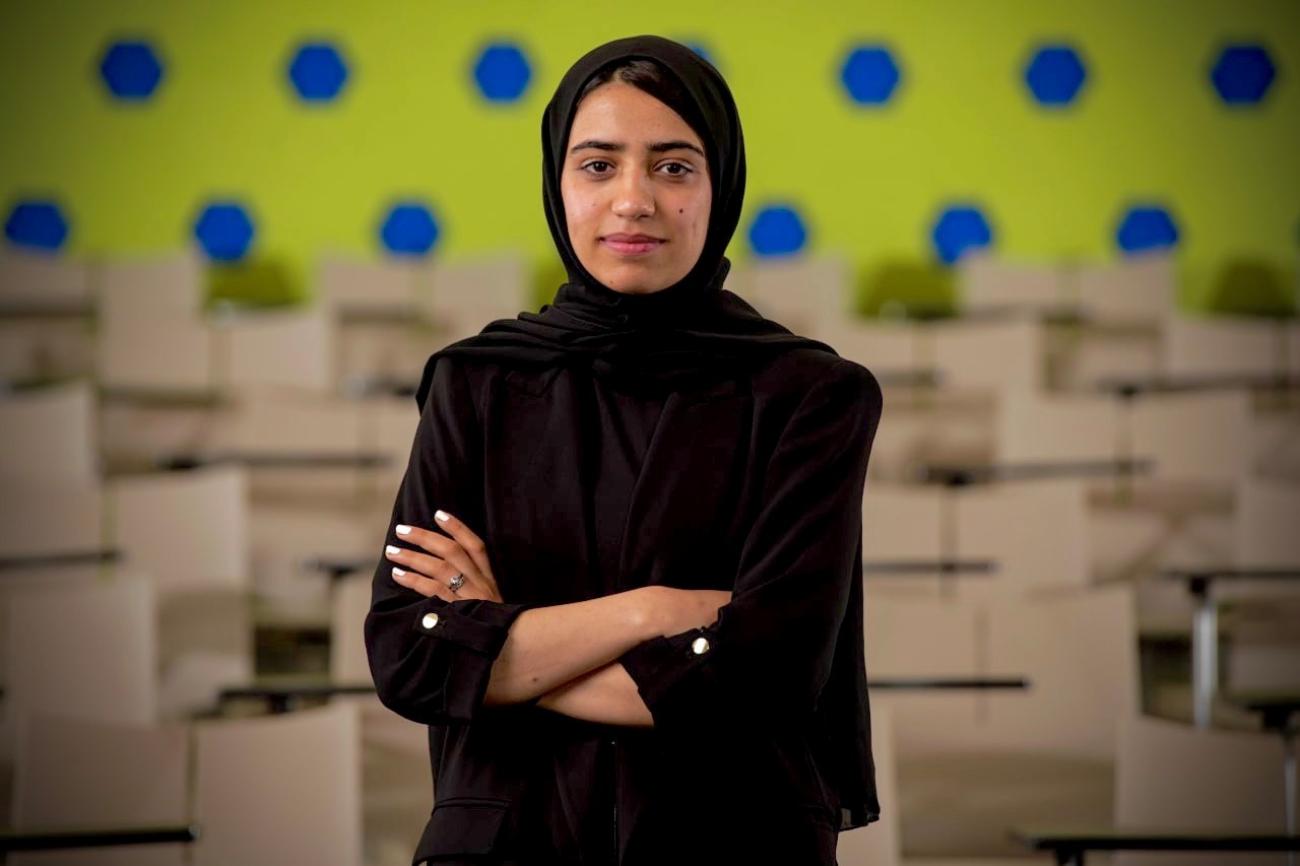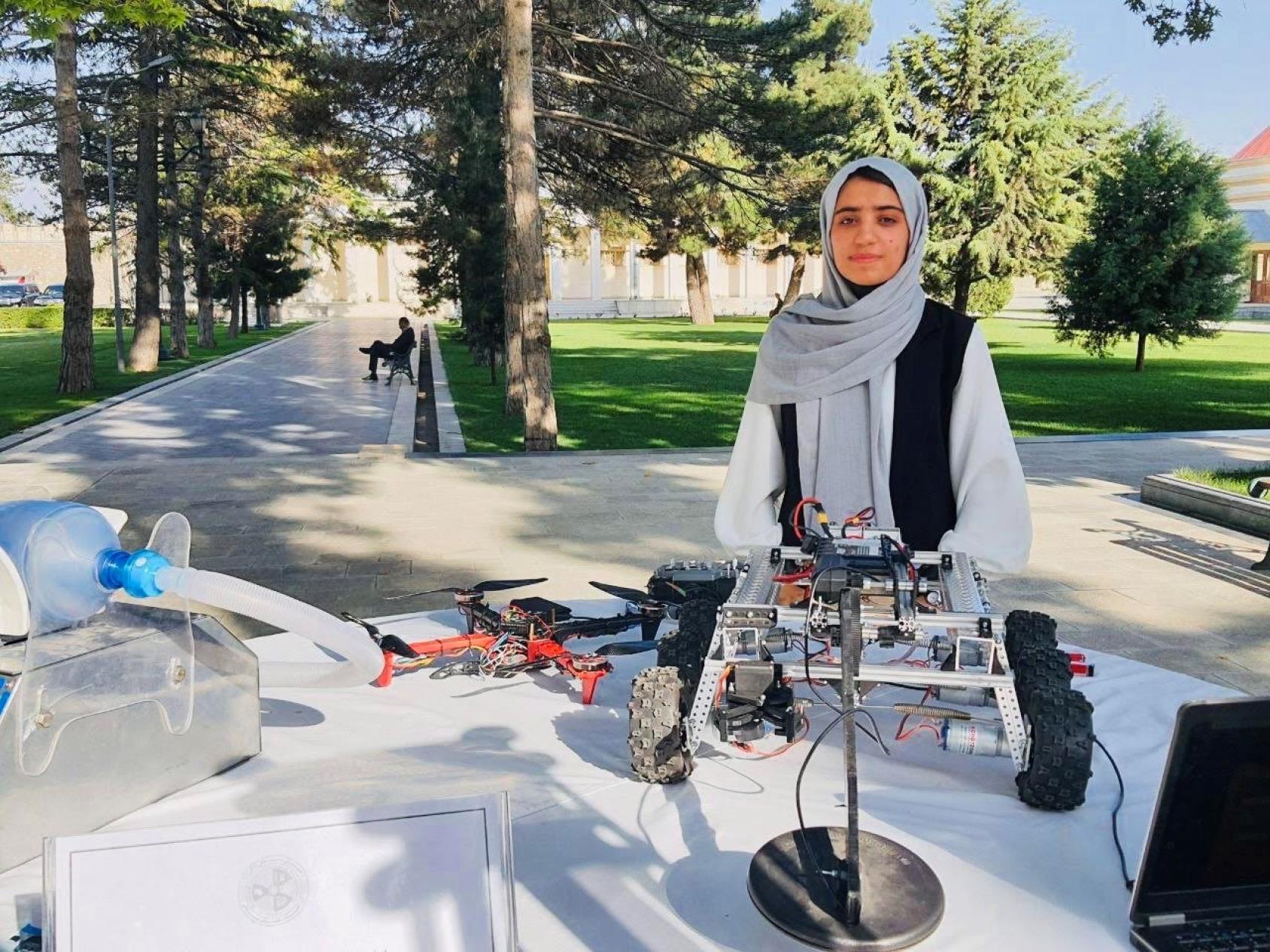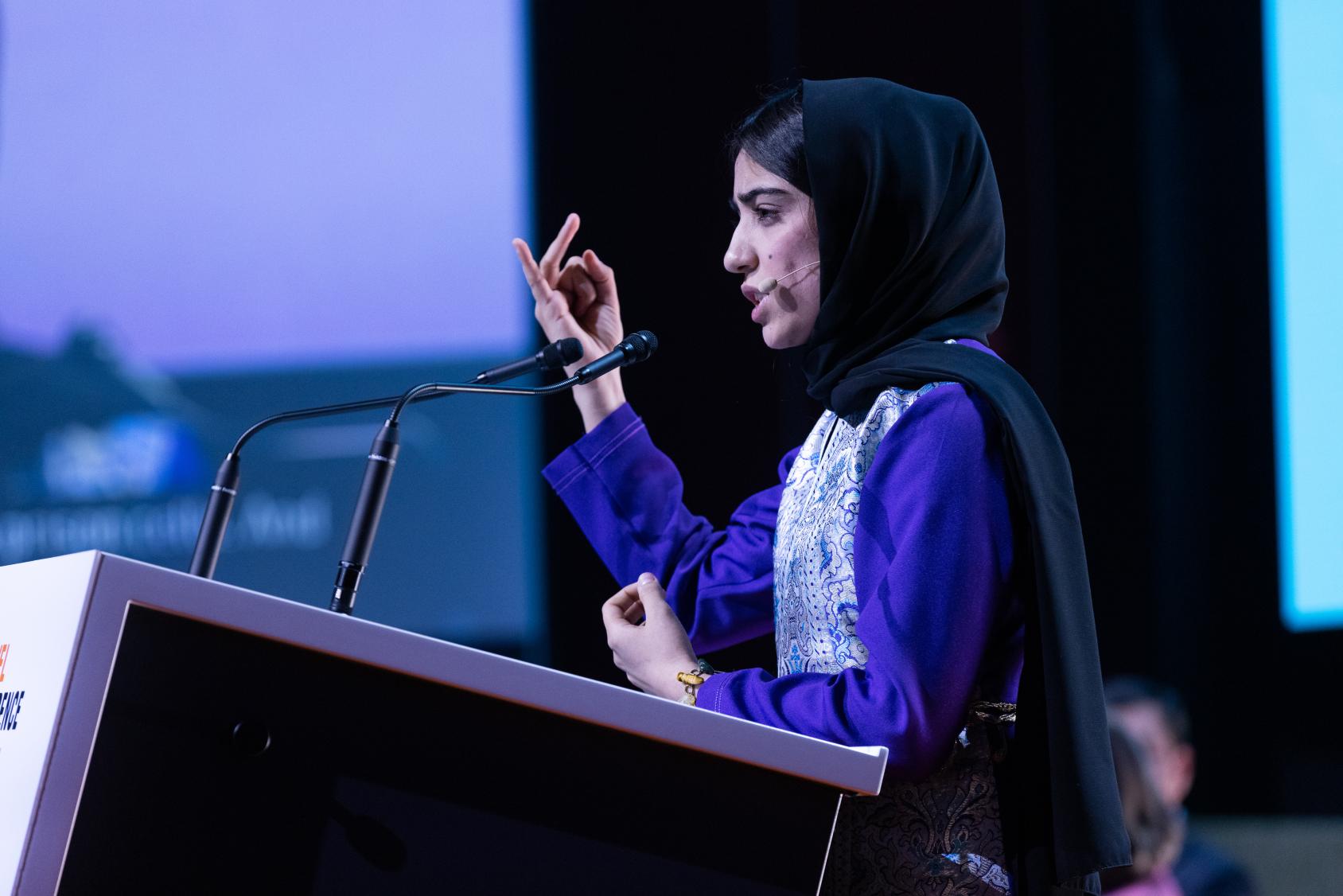For Afghanistan's dreamers, the past two years have been too long

On 15th August 2023, Education Cannot Wait (ECW)- the United Nations' global, billion-dollar fund for education in emergencies and protracted crises- launches the month-long #AfghanGirlsVoices campaign. In collaboration with Somaya Faruqi, ECW's Global Champion, the campaign aims to lift the voices of girls in Afghanistan who are being denied access to education and the future they’ve worked for and dreamed of. Join the campaign and share the social media kit here.
Two years ago today, Somaya Faruqi, then a 19-year-old teenage girl, found herself - alongside nine other girls from her robotics team - in the middle of Kabul as the de facto authorities took power in Afghanistan. The team had been in the capital city for a robotics competition. They never imagined that this would mark the beginning of a journey that would take them away from their beloved country and change their life forever.
Somaya recalls the scene around them as they made their way to the Kabul airport – along with thousands of others: armed men patrolling the streets, lost children crying for their parents, mothers hysterically searching for them around buildings, corpses and injured people along the ground.
The all-girls Afghan Robotics Team - nicknamed “The Afghan Dreamers” and for which Somaya was the captain – had been regularly featured in Afghan news for their work in science, technology, engineering, math (STEM) and for being active in the society – were suddenly no longer safe in Afghanistan. Somaya and her team members had to flee and find safety in Qatar.

The first two months in Doha were particularly difficult. "Most of us were feeling very depressed. Every time we started to talk about Afghanistan, we would cry. It was difficult to talk about what we had witnessed in those final days,” says Somaya.
On 18 September 2021, within weeks of taking power, the de facto authorities imposed a ban on girls attending secondary school. Despite their promises to reopen school to all girls within a few months, the ban has been strictly maintained, and expanded over the past two years. Since then, the ban has left 1.1 million girls and young women in the country without access to formal education. In December 2022, university education for women was additionally banned.
Childhood dreams turn into stark realities
Somaya finished her 12th grade in Qatar, from where she applied to college and received a scholarship from the Qatar Fund for Development to pursue engineering studies in the United States. Since she was a child, becoming an engineer was all she dreamt about. She just never imagined she would have to leave her homeland to do it.
“What I had dreamt of as a child compared to my reality now is very different. I’m studying what I always wanted to study, but I never imagined I would have to flee my country to do so. Sometimes, I feel guilty that I can study when my old classmates cannot even go to school in Afghanistan - and some have been forced to marry at a young age,” she says.
Today, as Somaya pursues an engineering degree in the United States, she cannot believe a second year has come and gone with her friends in Afghanistan being denied their inherent human right to education, to learn and to pursue their own dreams.
The toll on girls’ rights and well-being
Now 21, Somaya says the situation for girls in the country is beyond comprehension. “Girls have been banned from public spaces: schools, gyms, parks; there is nothing allowed for them to do; just to stay at home. Many have been forced to marry,” she says, adding that the situation is taking an immense toll on girls’ mental health. “Depression is widespread. The rate of suicide for girls has gone up a lot in the last two years. It is tragic.”
Somaya stresses the urgent need to support online mental health resources to help girls and women who are trapped at home cope with the hardship they are experiencing and help them recover and sustain hope. “The situation is particularly difficult for girls forced into marriage. There needs to be more efforts and campaigns to raise awareness and change the cultural norms that push families to marry their girls.”
Ramping up support for girls’ education
Somaya is also calling for more resources to support online education and community-based education initiatives - such as the ECW-supported multi-year resilience programme which supports over 250,000 children and adolescents in remote areas of the country through community-based education organised at the local level with the support of local communities.
Somaya keeps in contact with girls in Afghanistan and hears their stories and reads their heart-breaking texts. The ECW Global Champion is determined to use her platform to speak for those left furthest behind in her home country.

Somaya recalls reading about the first all-women UN mission to Afghanistan after the takeover - led by ECW Executive Director Yasmine Sherif - to advocate for girls’ right to education. She says hearing of this fearlessness and passion inspired her and gave her motivation to keep going.
Hope in dark times
What keeps her going on the hardest days? The resilience of Afghan girls living in an impossible situation but holding on to hope that they will return to school one day. And, the Afghan women on the streets risking their lives to protest for their rights.
“The courage of these girls in Afghanistan gives me the strength to use my own voice as an activist and as an ECW Global Champion to amplify their voices to the world. It also inspires me in my own studies in engineering because I know the value of the education opportunity that I have, one that they are unacceptably being denied.”
When asked what she hopes for in the coming months and year, she doesn’t hesitate:
“I hope this is the last time we are forced to mark this terrible ban on girls’ education. I hope we will soon be celebrating the return to school of all girls in Afghanistan. I hope we will be celebrating their freedom rather than marking their oppression. So much can change for the better if we all take action together now, in solidarity with every Afghan girl.”
For more information about the UN's work in Afghanistan, please visit www.afghanistan.un.org













